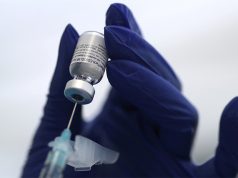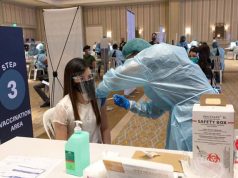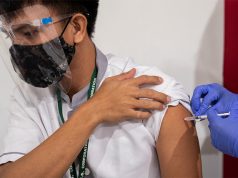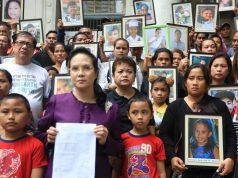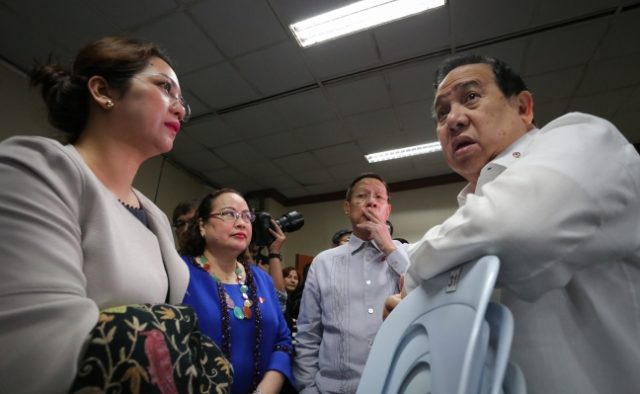
Former Health Secretary Paulyn Rosell-Ubial declared that continuing the dengue vaccine program was one of the most difficult things she has had to do in her 29 years in government, acknowledging that she deliberately delayed its implementation because she was worried about certain issues surrounding it.
On Monday, during the Senate hearing on the procurement of Sanofi’s Dengvaxia and the pharmaceutical giant’s recent disclosure that persons who were vaccinated but have never had prior dengue fever could experience “severe dengue” once infected with the virus, Ubial said that she had even objected to the immunization program when she was still Assistant Secretary.
Dr. Ubial added that she was even considering stopping the delivery of Dengvaxia doses, but “people in Congress” were telling her she would go to jail if she did not honor the contract (presumably with Sanofi Pasteur) and implement the program.
Asked by Senate Blue Ribbon Committee chairperson Senator Richard Gordon about whether the program was rolled out prematurely, she replied, “I love the DOH. It would appear that I am destroying the organization if I say the things that I am going to say, but I have to say it. I did not make any arbitrary decisions, and every policy and decision I made as Secretary of Health was in consultation with vital stakeholders, and looking at all available data at that particular time, and in consideration of the health and welfare of the Filipino people. I had no hidden agenda. It was unfortunate that before I became Secretary of Health, I was Assistant Secretary of Health. And at that point in time, sometime in March 2016, I was already objecting to the introduction of dengue vaccine based on the following reasons.”
1. The pilot study of a vaccine is usually made up of a small group, from 20,000 to 40,000. Dengvaxia had clinical trials for 20 years covering only 40,000 persons. Why give the vaccine to one million children in one year?
2. The unwritten rule when it comes to the Expanded Program on Immunization (EPI) is that new vaccines are not introduced during an election year. This is because no matter how good that vaccine is, it will be tainted and seen as part of someone’s hidden agenda.
“So that is why we do not mix health and politics. It will destroy the vaccine even if it is very effective and very safe,” Ubial said.
3. The new vaccine must be introduced to the private sector first before a government public health program. This is because there is a one-on-one relationship in the private sector. The doctor sees the patient, follows up on his or her condition, and can easily monitor all patients given the vaccine.
4. The social preparation needed for the rollout of the vaccine is lacking. It takes one to two years to prepare a community, health workers, logistics, cold chain, training, human resources, syringes and needles, risk communication, and others. There was no program in the EPI that took shorter than that.
“Now, when I became Health Secretary, I’m sorry to say… it was very difficult for me to implement this program. But I had no recourse. I was already on damage control… I wanted to stop the next delivery, because only 200,000 was delivered in March, the next delivery will be in August and in January. I wanted to stop that. To save the Filipino two billion (pesos),” Ubial narrated.
She continued, “People in Congress were telling me, you will go to jail, Doktora, if you do not implement this program. Because there is a contract, you have to honor that contract.”
In deciding on whether to expand the program to Region 7, Ubial vetted it with an expert panel, “Because I do not want to appear that I made a unilateral decision or arbitrary decision, because when I was Assistant Secretary, I was already objecting to the rollout of this vaccine.”
The experts gave their go signal; meanwhile, the World Health Organization released the guidelines in the implementation of the vaccine.
“We know that WHO does not make endorsements, because that would make them appear like they’re advertising or they have commercial interests in this vaccine. They suggest and take up findings from research and summarize it and make scientific conclusions. So when they came out in July 29, 2016 that this vaccine is safe, this vaccine is efficacious, it will save a lot of people hospitalization, and it was licensed by the FDA, at that point in time, your honor, the Filipino people, I had no choice but to implement the immunization program,” Ubial said.
She said that then Kabayan Representative Harry Roque’s accusation that she was “flip-flopping” on the issue was true.
“I was really worried about implementing this program. I dilly-dallied. That was intentional because of the issues that were raised by Dr. (Antonio) Dans and his team, Dr. (Tony) Leachon in their April or March letter to the Secretary of Health. There were issues on long-term safety,” Ubial said.
She continued, “And so I had to really be very, very careful, go the extra mile, extraordinary diligence in implementing this particular program and I’m glad I did it, I did it with dilly-dallying and flip-flopping and delaying as much as possible the implementation of this particular program.”
Ubial asked Congress to look into the “messed up” process by which new vaccines are introduced.
“It should not have political interference. If you mix politics and health, it’s really a disaster,” she said.
“You have products registration, and it was not FEC (Formulary Executive Council)-approved yet, and yet, they were buying already,” Ubial said. “So that created a lot of pressure on all the people who will approve the FEC exemption. And a lot of pressure on the people that will implement the program.
“Imagine, three billion pesos worth of vaccines that were already in the pipeline for procurement, and then for you to disapprove the exemption. You will disapprove the program. You will disapprove the rollout. So it’s really very difficult. This is one of the most difficult things I have had to do in the 29 years that I have been in government, your honor. I’m sorry to say that.”
Earlier in the hearing, former Health Secretary Janette Garin explained that when considering an immunization program, the DOH consults internal and external experts, which will recommend to the government what it should do. If there is a drug or medicine which is not yet in the Philippine National Drug Formulary, they will request the FEC to convene and discuss in the presence of the experts.
Ubial commissioned a review of the program and the results came out in September this year showing that nothing illegal occurred, and everything was done within the bounds of the law. While it was not illegal, she said, it was unethical.





